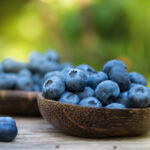Uruguay 'migrating' citrus exports to U.S., China

Uruguayan Fruit Producers and Exporters Union (UPEFRUY) head Marta Bentancur expects a good citrus season this year in terms of volume and size, as the industry continues its push into North American and Asian markets.
Speaking with Fresh Fruit Portal during industry trade fair in Berlin, the executive emphasized the sector had introduced a package of measures to prevent incidences of citrus black spot (CBS) - an issue the European Union has taken very seriously with a particular focus on South African imports.
"We're very happy as we haven’t had any phytosanitary problems - the year before last we had some serious problems with interceptions of fruit for citrus black spot, and this last year we had just two small interceptions," she said.
"A lot of mandarins were sent to United States, some 14,500 [metric] tons (MT), which is like a migration of fruit that used to go to England.
"As you know, we have a high tariff for mandarins of 12.5% in all of the European Union. They have gone to the United States where we don’t have this limitation, and prices have been more attractive."
Another key development ahead this year will be building on the Chinese deal which opened last year.
"Last year a trial was sent and this year we suppose there will be a bigger export flow. They’ll trial cold treatment to see how the fruit fares with the transit time we have, and there are great expectations," Bentancur said, adding the journey went via the Panama Canal.
"The transit time is more than 30-35 days depending on the stops that the ships have; as they are containerized, they stop in a lot more places than if they went with a full load.
"The [cold] treatment China asks of us is practically the same as the United States, but the United States has less transit time," she said, adding the China-bound season would likely go from May to September.
The industry is also hoping to re-open the Indonesian and Philippine markets, which were "interesting for us but we still haven’t managed to get negotiations", according to Bentancur.
Nonetheless, the European Union remains a strategic market for Uruguayan fresh produce and other agricultural industries, underscored by a visit from Uruguayan President Tabare Vazquez at the trade fair.
"So the president made a lot of emphasis that Uruguay is a small supplier but a serious supplier, and we are working on everything that is environmental and social sustainability as well as food safety," she said.
"We are positioning ourselves in the market not with volume but with social responsibility."
In other Uruguayan fruit crops, she said that like in other South American countries the blueberry campaign has been "extremely difficult".
"One of the factors has to do with weather – rains during the harvests – and the rest has to do with prices," she said.
These two crops dominate the small country's fruit export portfolio, but Betancur highlighted there were other commodities in the works for future growth.
"There are some small plantations that are growing in persimmons. They are being planted for export and in some years we’ll have an interesting volume.
"Most of the varieties come from Israel with good post-harvest performance, and they are planned mainly for the American market which we don’t have open but soon negotiations will start.
"Serious phytosanitary problems haven't arisen to prevent us from growing. In truth it's been very good and they’re traded in the local market.
"We have a varietal conversion in apples but with a very attractive local market; there hasn’t been a growing evolution in the international market. Small volumes are exported but not in a constant way, depending on the domestic market."
Headline photo: www.shutterstock.com















































